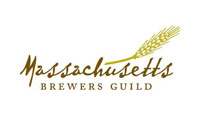
House Bill 1897 would allow small brewers — those who sell less than 6 million barrels of beer globally and account for less than 20 percent of a wholesaler’s business — to buy back their brands for “fair market value.”
Currently, brewers have to go to court to reclaim their brands by proving that wholesalers are not performing their sales roles sufficiently; only then can the brewers determine how much they need to pay to regain control of their brands.
“It creates accountability,” said Rob Martin, President of the Massachusetts Brewers Guild. “Wholesalers will pay more attention to our brands if they stand to lose them.”
The bill aims to prevent wholesalers from becoming ‘brand collectors’ with the intent of keeping brands locked up so competitors wouldn’t be able to add it to their distribution portfolios.
“We are trying to create a situation where there can be a conversation about releasing brands,” Martin said.
Currently, brewers in Massachusetts are only allowed to change distributors within the first six months of entering a partnership. This was recently the case for Somerville Brewing Company, who chose to leave Arborway Imports for the much larger craft network Massachusetts Beverage Alliance. But most brewers say that six months is hardly enough time to gauge the results of a partnership.
While the filing is being watched by local brewers, it’s also part of a wider legislative strategy by the craft brewery industry overall. The Brewers Association has been advising its members on a series of bills designed to alter the framework of state regulations to better accommodate craft brewers.
In Washington, a brewer producing less than 200,000 barrels annually is exempt from the state’s beer franchise laws. In Nevada, the threshold is much lower, just 2,500 barrels. And in New York, pending legislation would allow a small brewer to drop its wholesaler if that brewer’s sales accounted for less than 3 percent of the wholesaler’s business. The brewer would still have to pay fair market value for its brand.
Ted Zeller, General Counsel to D. G. Yuengling & Son, said the reason behind the passage of the original franchise laws has diminished over time.
“These laws were originally the shield for smaller wholesalers against the manufacturer,” he said. “Now they are being used as swords by larger wholesalers to bully smaller suppliers.”
Marc Sorini, a lawyer for Boston Beer Co. and Harpoon Brewery and an advisor on the Massachusetts bill, said he believes the proposed legislation is not only a good idea but a fair solution for both brewers and wholesalers.
“The current laws are unwaive-able,” he said. “It doesn’t matter what a wholesaler is promising upfront, a lot of times they will change their tune when it comes down to exiting.”
Sorini believes that if it is successful, legislative reform in Massachusetts could prove persuasive for small brewers looking to pass similar laws in other states.
“I think there needs to be an example of a state passing legislation like this,” he said. “It will provide a good example against the ‘sky is falling’ type of arguments. It will show that wholesalers will still be able to do business and the three-tier system will not collapse.”
